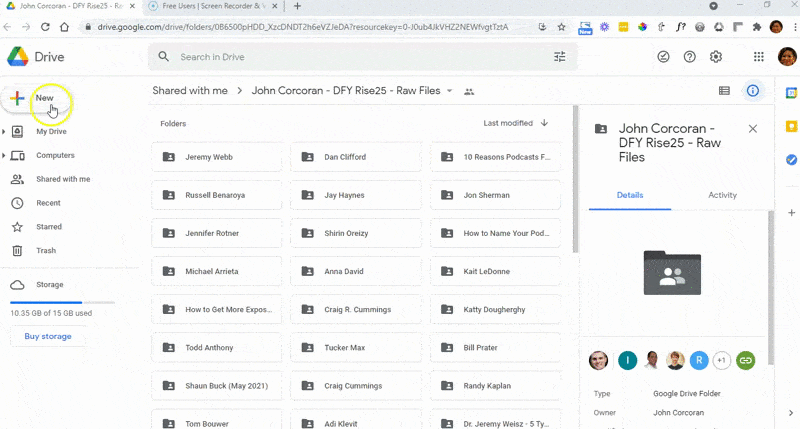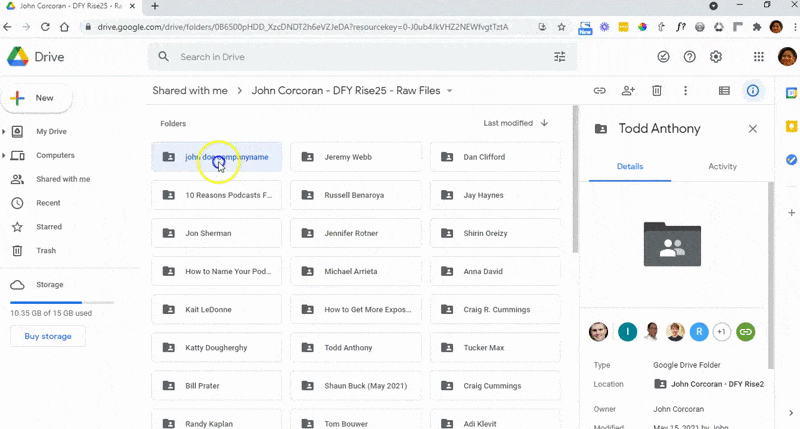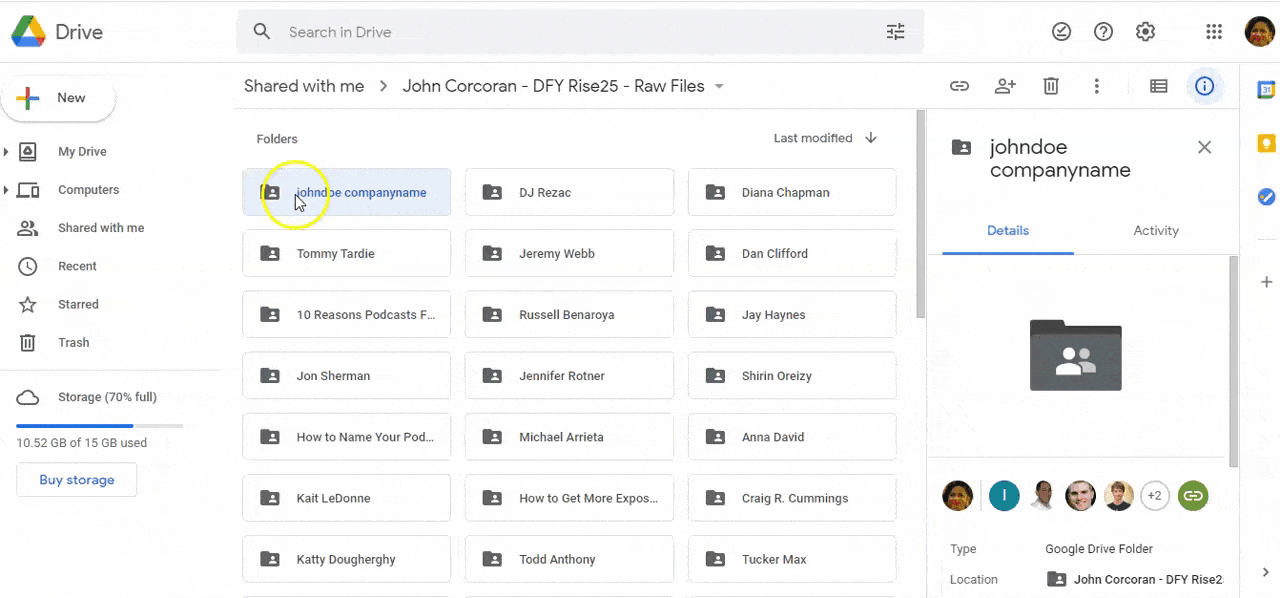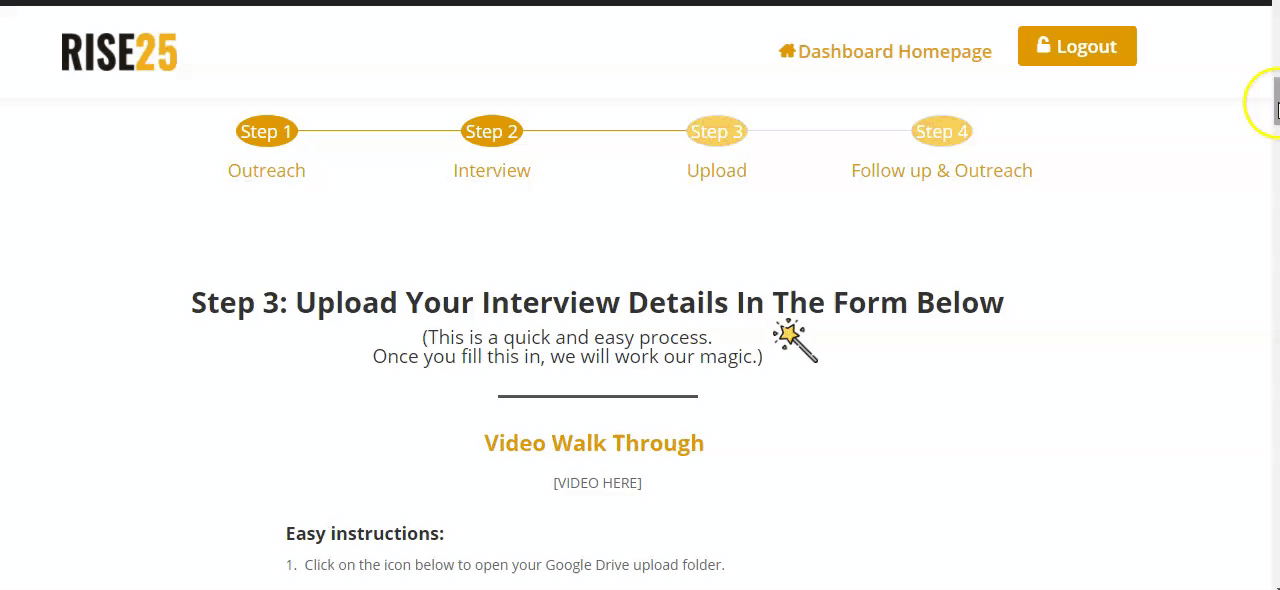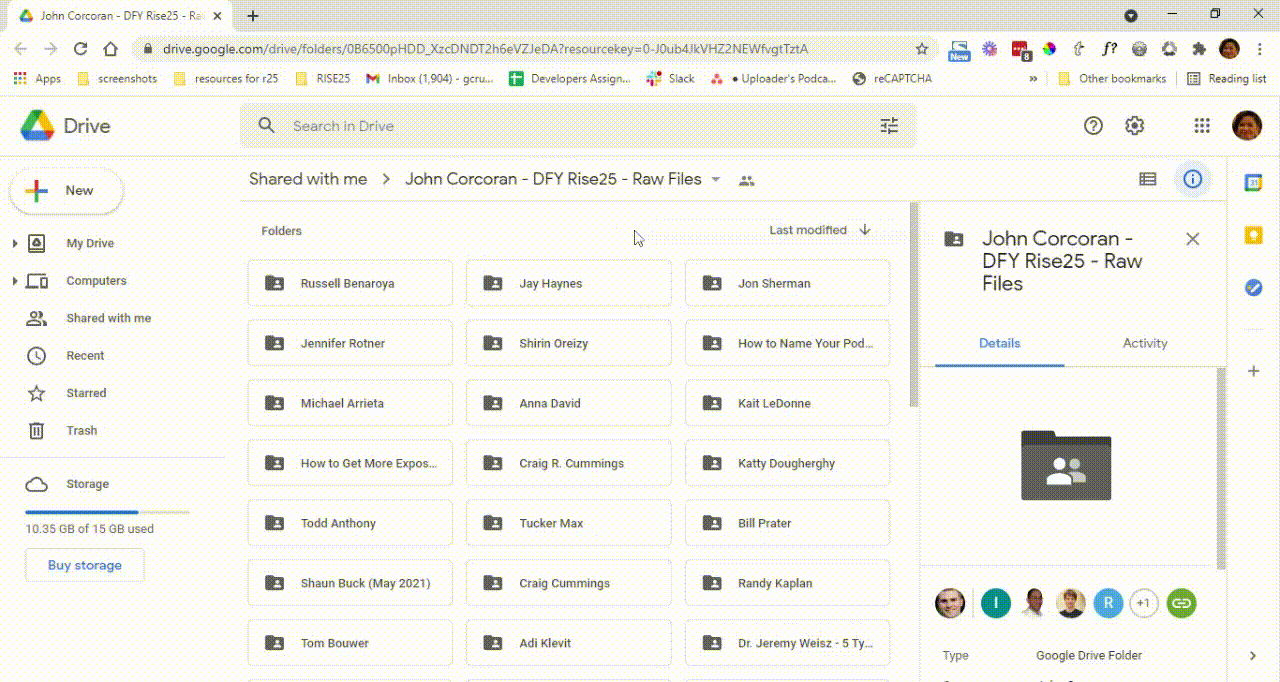How to Niche Without Niching: Seasons vs. Series
Many podcast hosts organize their episodes into seasons rather than releasing an ongoing series. While this may make sense in other categories, B2B podcasts reap the most rewards by sticking with a series format.
A series will enable you to niche without niching. You can speak with as many CEOs, CMOs, and CFOs from any industry you want without losing momentum. All you have to do is create a dedicated series for each segment you choose.
This practice is a good way to future-proof your podcast, maximize guest referrals, expand your audience, and extend your network. The goal of doing a podcast for your B2B business is to build lasting relationships with industry experts. The conversations on your podcast will help you deepen existing relationships, acquire more clients, and establish authority in your field.
1. Choose a future-proof podcast name
Before finalizing your podcast name, make sure it’s future-proof. Your goals, the guests you want to interview, and the topics you wish to discuss can change.
Choosing a podcast name that can adapt as your podcast grows will protect you from restricting the content you produce.
2. Consider a series format instead of dividing your podcast into seasons
Seasons aren’t best for B2B podcasts. They can restrict the number of episodes you produce, your growing network, and the topics you discuss.
A series won’t hinder your momentum. You can discuss several topics and reach multiple audiences simultaneously.
Two benefits of podcasting are building relationships and connecting with other business industry leaders. A series is better equipped to assist in achieving this goal.
3. Segment your series on your website
Help your audience easily access a past series by grouping the episodes together on your website.
For example, if you run a series featuring CMOs and CFOs, consider adding a CMO Series and CFO Series section on your website. Creating a series section on your website saves your audience time locating the episodes that interest them.
4. Reach out to the right people and communicate the right way
If you’re in the early stages of launching your podcast, prioritize communicating your goals to the appropriate connections. Depending on the established relationship, determine if sending a text, email, or LinkedIn message would be best.
Inform your network that you are starting a series for your podcast — for example, a series featuring CEOs in the Tri-state area. You can do the same with your ideal guests for another series you are considering — for example, Founders of e-commerce businesses.
Communicating effectively with the right people will land you the best guests for your podcast and can assist in leveraging new guests in the future.
5. Delegate
Some podcast hosts choose to do seasons instead of a series format because they want to take a break. Whether using a seasons or series format, if producing your podcast leads to burnout, reconsider your process.
Your focus should be building relationships with your guests and expanding your network. Delegate tasks like production, writing and editing show notes, and publishing to a trusted and reputable podcast production company.
6. Implement the right strategies
In addition to delegating tasks, implementing the right strategies will assist in achieving the goals you have set for your business and podcast.


